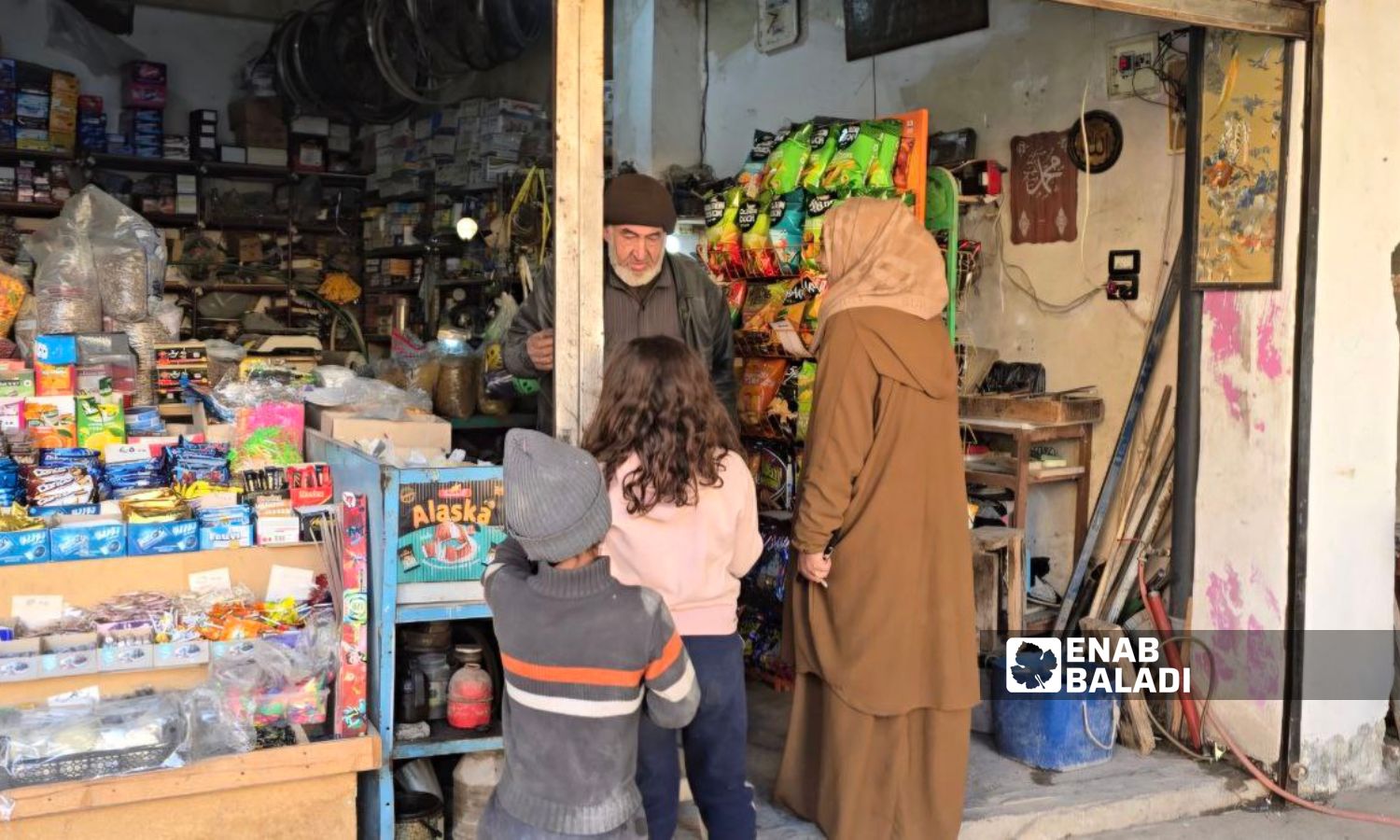



Markets in rural Deir Ezzor, which is under the control of the Autonomous Administration of North and East Syria (AANES), are experiencing a recession due to rising prices of goods and food materials, despite the improvement in the value of the Syrian pound against foreign currencies, where 1 USD equals 9,200 Syrian pound.
Sales activity in the markets has declined during January and February, according to shop owners interviewed by Enab Baladi.
Fayyad al-Saleh, the owner of a grocery store in the town of Darnaj in eastern Deir Ezzor, stated that wholesale traders have raised prices of goods, which has kept their prices more or less steady despite the pound’s improvement.
He added to Enab Baladi that the price of a kilogram of rice remained at 15,000 pound, a liter of vegetable oil at 22,000, a kilogram of sugar at 10,000 pound, and a kilogram of tomato paste at 18,000 pound, noting that prices are nearly similar to those in November 2024.
For his part, Hassan al-Jarad, a food trader in the village of al-Attal in eastern Deir Ezzor, mentioned that some wholesale traders attributed the price increases to the fact that the goods are old and were purchased before the pound’s value improved.
He added that transactions between sellers and traders have been in US dollars since 2019, asserting that the failure to reduce prices is a “game and manipulation by wholesale traders.”
Prices vary from one shop to another and from one area to another, with some sellers attributing the reasons to high transportation costs and others to increased shop rents.
A source in the Economy Committee of the Deir Ezzor Civil Council, affiliated with AANES, who requested anonymity because he is not authorized to speak to the media, said that most traders selling in the commercial market in rural Deir Ezzor possess official invoices, and according to these invoices, they cannot be penalized by supply or municipal officials or any committee because their operations are legitimate.
The source highlighted that there has been an increase in the prices of goods coming into areas controlled by the AANES, indicating that the inflation arises from the source.
According to Enab Baladi‘s monitoring, the prices of several items have not decreased in either rural Deir Ezzor or in the city center controlled by the transitional Damascus government, including the prices of fast food, which have increased despite the decline in prices of the raw materials used.
Despite the decrease in prices of some goods in Deir Ezzor, such as oils and vegetables, the market activity remained sluggish due to the deterioration of living and economic conditions, as well as the low financial capacity of the local population.
if you think the article contain wrong information or you have additional details Send Correction